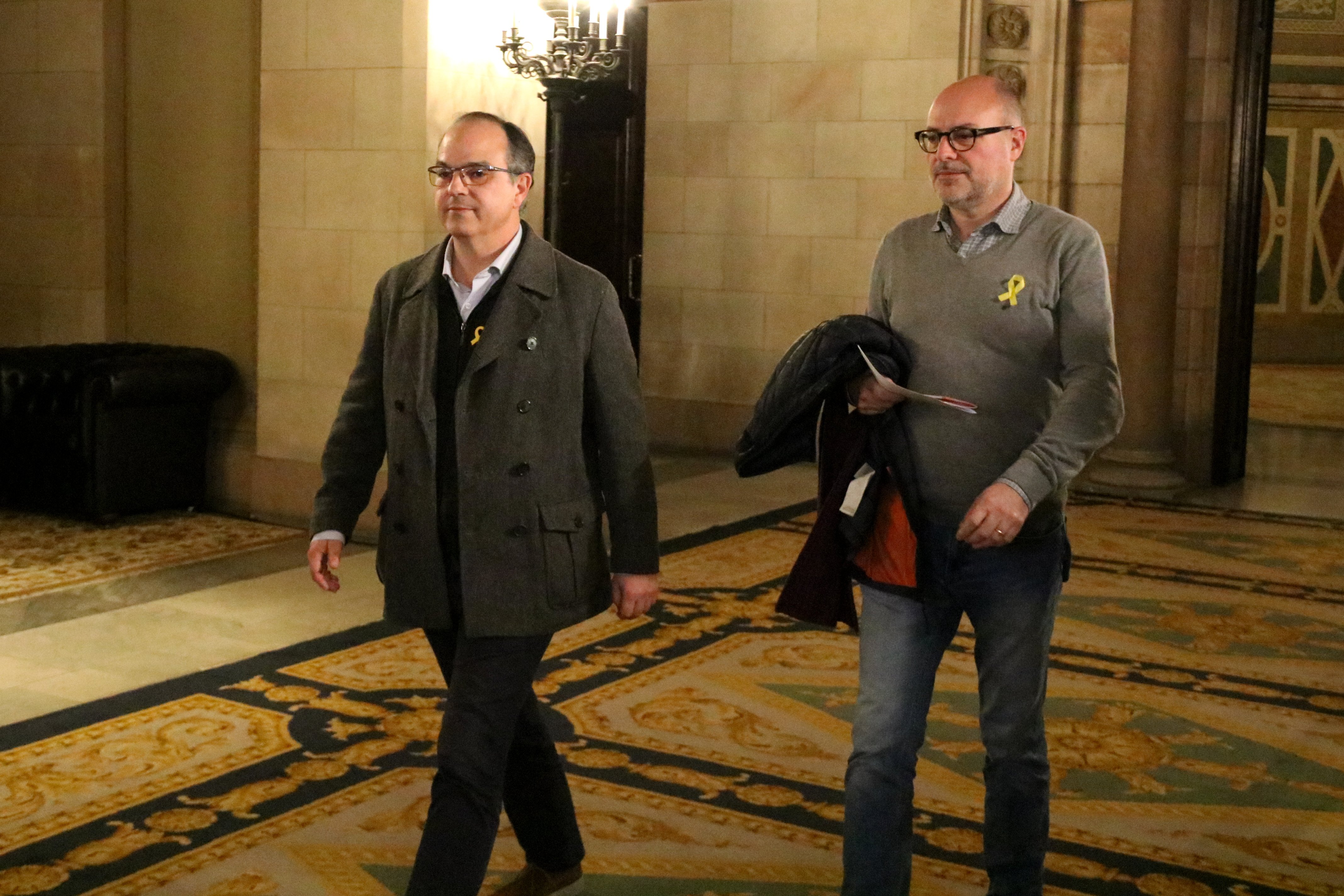Just hours before the start of the parliamentary debate on the forming of a new Spanish government, and with members of the pro-independence party Together for Catalonia (JxCat) still to decide on their position when they hear the speech by prime ministerial candidate Pedro Sánchez, at least two of their fellow JxCat deputies - in this case, those in the Catalan Parliament- have insisted on voting against the Socialist leader. This is the case of JxCat deputy Pep Riera, who says he's opposed to not just a 'yes' vote, but also an abstention.
"Abstaining or voting yes to @sanchezcastejon means we are giving up as a party and it disconnects us from the people who voted for us," says Riera, adding that such a vote "would make me disconnect from myself and from the colleagues I have most confidence in," finishing his message with a clear message "#NoSurrender."
L’abstenció o el sí a @sanchezcastejon ens uneix a la renúncia partidista i ens desuneix de la gent que ens ha votat. I a mi em desuniria de mi mateix i dels companys en qui confio més.#NoSurrender
— Pep Riera Font 🎗 #JxCat (@PepRieraFont) July 21, 2019
A similar views was echoed on Sunday by deputy speaker of the Catalan Parliament, Josep Costa, in response to the warning by exiled Catalan minister, Clara Ponsatí, on the consequences of supporting Sánchez. In Ponsati's view, saying yes to the PSOE leader will mean that the repression has defeated everyone, and that the independence movement no longer has representation in Spain's Congress.
Si la setmana entrant no veiem diputats catalans votant NO haurem de conclourem que la repressió els ha derrotat a tots, i que els independentistes no tenim representació al Congreso.
— Clara Ponsatí (@ClaraPonsati) 21 de juliol de 2019
Faced with these reflections, Costa did not hide his rejection of voting for Sánchez. The JxCat deputy admitted that "it is very difficult to explain" that in February his party and the other major pro-independence party ERC made the Spanish government fall by voting against the budget "because they had walked away from the negotiation table and now we are being asked to facilitate a new Sánchez government without him showing any intention to sit down again. "
Certament, és molt difícil d’explicar que en febrer els dos grups independentistes féssim caure el govern espanyol perquè s’acabava d’aixecar de la taula del diàleg i ara hom vulgui que facilitem la investidura sense que Sánchez hagi mostrat cap intenció de tornar-hi a seure. https://t.co/IbXFDLbe1c
— Josep Costa🎗 (@josepcosta) July 21, 2019
JxCat members in Congress decided this week after meeting with the jailed and suspended deputies of their parliamentary group, Jordi Sánchez, Jordi Turull and Josep Rull in Lledoners prison, that they will wait until they have heard Sánchez's proposal before deciding their vote on his investiture. The alternatives being considered are 'no' and abstention - the latter could be enough to allow Sánchez to form a government on the second ballot.

